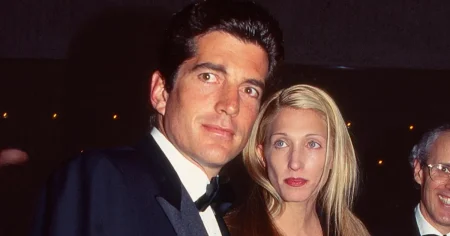The 67th Grammy Awards ceremony, held on February 2nd, became the stage for an unexpected controversy surrounding Kacey Musgraves’ reaction to Beyoncé’s win for Best Country Album. Beyoncé’s album, “Renaissance,” a genre-bending project that incorporated elements of country music, earned her the accolade, marking a historic moment as she became the first Black woman to achieve this feat. However, the focus shifted from the historic win to Musgraves’ perceived reaction, with some online observers interpreting her applause and standing ovation as a sign of displeasure. This sparked a wave of speculation and criticism, fueling a narrative of rivalry between the two accomplished female artists.
Musgraves swiftly addressed the burgeoning controversy, dismissing the online interpretations as a “sensationalistic false narrative.” Her representative clarified that there was no scowl or negative expression, emphasizing that the narrative was a mischaracterization of her genuine support for Beyoncé. The fabricated rivalry storyline aimed to pit two successful women against each other, disregarding their past expressions of mutual respect and admiration. The incident highlighted the dangers of social media’s tendency to misinterpret nuances and amplify speculation, transforming a celebratory moment into a subject of unfounded controversy.
The online speculation surrounding Musgraves’ reaction was particularly unjust given her previous statements expressing open-mindedness towards artists from other genres venturing into country music. In a March 2024 interview with The Cut, she welcomed the diversification of the genre, stating “The more the f—ing merrier,” emphasizing that such crossovers did not impact her own artistic pursuits and were, in fact, “fun to watch.” This statement directly contradicted the narrative of resentment spun by online commentators, showcasing a welcoming attitude towards genre fluidity and artistic exploration.
Adding further credence to the supportive environment within the country music community, Lainey Wilson, another nominee in the Best Country Album category, echoed Musgraves’ sentiments. Weeks prior to the Grammys, Wilson expressed her positive view of artists like Beyoncé and Post Malone entering the country music sphere. She highlighted their role in introducing the genre to new audiences, emphasizing the positive impact this crossover had on expanding country music’s reach. Wilson’s statement reinforced the notion of a welcoming and inclusive community, contrary to the fabricated tension portrayed online.
The incident underscores the broader issue of how female artists are often unfairly pitted against each other in the media, particularly when competing for the same accolades. This manufactured rivalry distracts from the artists’ individual accomplishments and perpetuates a harmful narrative of competition rather than collaboration. In this case, the focus shifted from Beyoncé’s historic achievement and Musgraves’ own win for Best Country Song (“The Architect”) to a manufactured conflict, demonstrating how quickly celebratory occasions can be overshadowed by unnecessary drama.
Ultimately, the controversy serves as a reminder of the importance of critical consumption of information, especially in the fast-paced world of social media. The incident highlights how easily misinterpretations and assumptions can escalate into full-blown narratives, often with detrimental consequences for those involved. The swift response from Musgraves and the supporting statements from her and Wilson helped to dismantle the false narrative, emphasizing the need for careful consideration and verification of information before contributing to online discussions. Their positive outlook on genre blending and the expansion of country music stands as a testament to the collaborative spirit within the music community, a spirit often overshadowed by the relentless pursuit of sensationalism.














